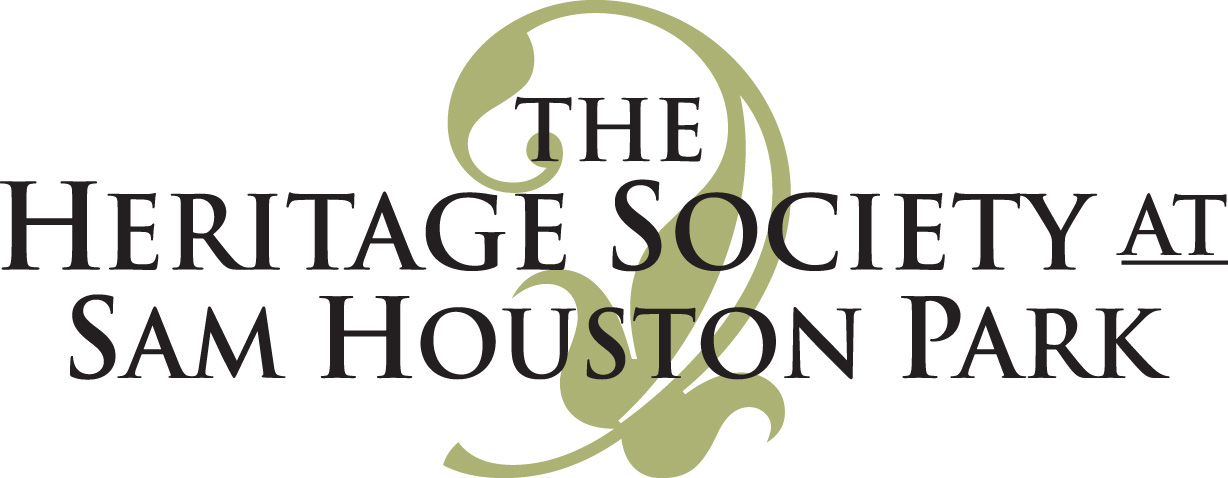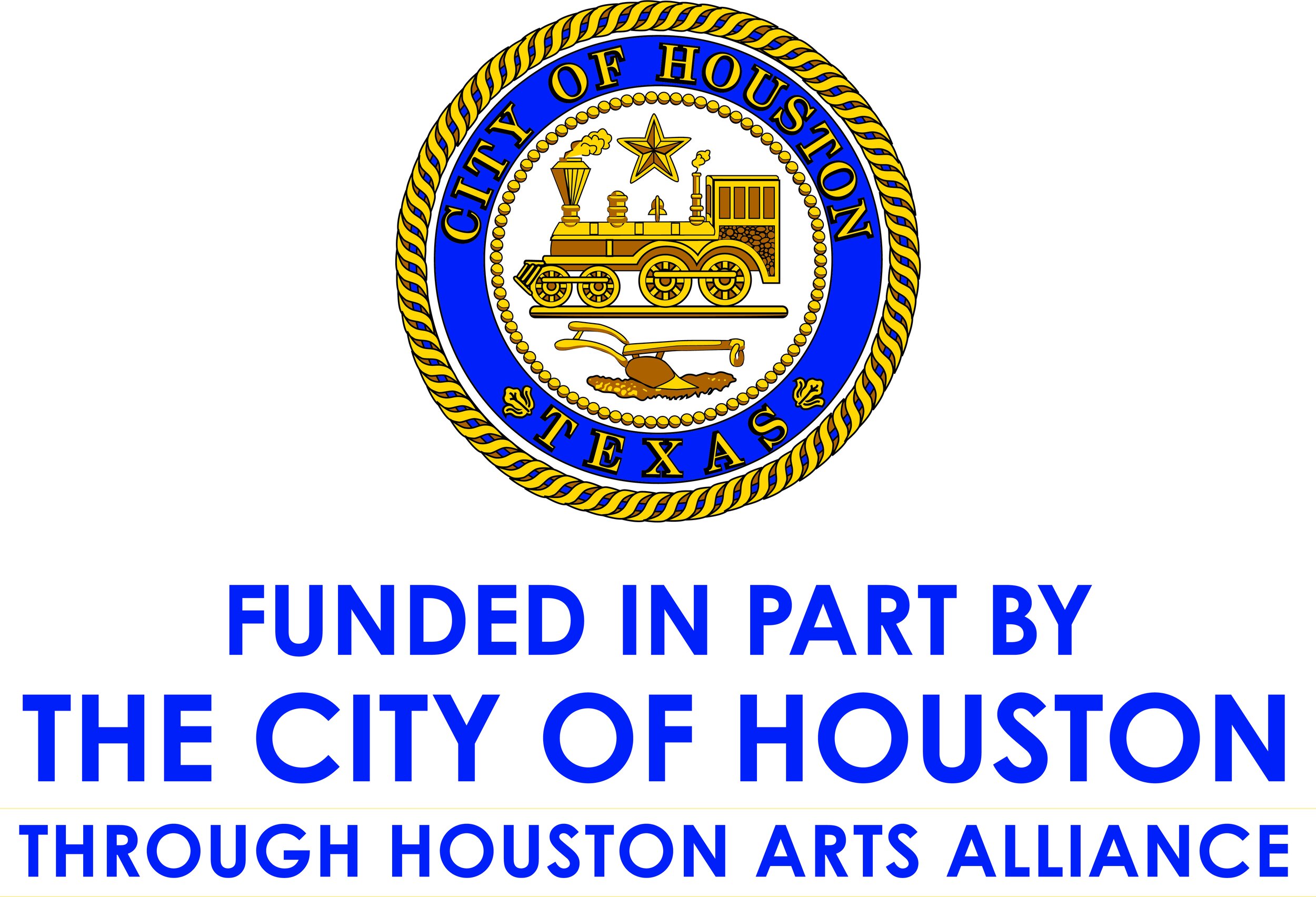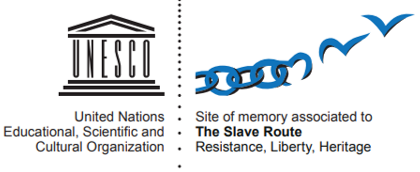Agatha Babino’s Story: A Narrative of the Formerly Enslaved
Tuesday, August 13 - Saturday, November 9, 2024
Closing Exhibit Reception - Saturday, October 19, 2024
A Survivor of Slavery’s Journey and Connecting with Your Families’ Past
Survival in general was hard in the 1800s, and brutal if you were enslaved. This exhibit covers three critical periods of inhumanity and efforts toward humanity - slavery, emancipation, and reconstruction.
Visitors will discover what enslaved people endured based on the historical case of Agatha Babino’s published Slave Narrative in the Library of Congress.
What is a Slave Narrative? During the 1930s, the Works Progress Administration (WPA) Federal Writers' Project Born in Slavery: Slave Narratives, 1936-1938, collected over 2,300 interviews from formerly enslaved African Americans. Over 300 of these interviewees were taken from people living in Texas. The WPA narratives evidence the intention of formerly enslaved people to reconstruct and reshape their lives despite the hardships and challenges surrounding them.
When our visitors look into one person’s journey, we hope to inspire families to dig deep into their families’ journeys, discover the hardships and lifestyles their ancestors endured, and find out what brought their families to Texas. Why? Individuals and families will appreciate the present by viewing how oppression was real and why equality for everyone matters.
Before 1865, Agatha Babino, her parents, and siblings were enslaved on a plantation in Southern Louisiana. In her narrative, she recalls her existence in slavery, the moment of abolition, her marriage, her family members, and details of her life thereafter. Freed persons, like Agatha Babineaux, navigated the turmoil of war, economic disaster, and social unrest, in addition to the oppression of violence, racism, and segregation. This exhibit will make the story and experiences of Agatha Babineaux's life visible by rebuilding a family tree, plotting and exploring key locations discussed in her narrative, recalling related historical moments, and reestablishing connections among Agatha Babineaux's descendants.
With this exhibit, comes Connection. Just as the curator dove into her family’s past for this exhibit, we would like to offer how you too can find your roots. The Heritage Society is organizing family tree and genealogical research workshops once a month, so families can share their discoveries with their relatives. Sharing your families’ pasts is a great gift to share with your family for the holidays. Scroll below to see and RSVP for upcoming lectures and programs.
PROGRAMS
The Agatha Babino's Story Workshop and Lecture Series is guaranteed to expand your understanding of the conditions of life in the past. Diving into the circumstances of Agatha's life helps broaden our appreciation for family connections and the ability of generations of African Americans to thrive despite various impeding obstacles. SEE BELOW FOR PROGRAMS.
About the Exhibitor:
Museum of Undertold Texas History
The MOUTH Project is a growing collection and resource for others wanting to know more about Texas' multidimensional past. Digging through history is a massive undertaking. The process is slow and time-consuming - searching records, reading countless books, scanning collections, visiting historical sites, and reviewing existing research. As increasingly visual learners and very selective readers, we require uninhibited access to useful information. MOUTH makes Black Texas history more accessible and more engaging by tracing Texas' history through countless resources for others to discover.
Dionne Babineaux, Founder
Dionne Babineaux is a graduate student from Rice University focusing on the lives and communities of African-descended peoples in Texas, the US South, and the Caribbean during the nineteenth and early twentieth centuries.
Dionne uses various data compilation and analysis tools to support her research. She converts findings into meaningful digital humanities projects meant to engage the wider historical community and promote the learning of African American history. Her research areas are as follows: Nineteenth and Early Twentieth-Century US South with emphasis on Black Texas; Slavery and Post-Slavery African American Communities; Migration throughout the African Diaspora; Black Women and Families.
“Through MOUTH, I have discovered a way to combine my love for history, research, teaching, and communities. MOUTH was founded to collect the stories of African Americans in early Texas. Throughout history, African American Texans, tools in hand, built the infrastructure from which much of Texas would grow. It is my greatest pleasure to learn and share their stories.”
EXHIBIT PROGRAMS
Thursday, September 5, 6 p.m. - 8 p.m.
Learning from the Texas WPA Slave Narratives
Dr. Ronald Goodwin, Prairie View A&M University
Join us for an engaging and enlightening evening with Dr. Goodwin as we discuss the complex dynamics of the Works Progress Administration and the Slave Narrative interviews conducted with formerly enslaved Texans.
Dr. Ronald Goodwin, Professor and Interim Department Head from Prairie View A&M University, will discuss the collection of interviews of formerly enslaved people conducted in Texas during the 1930s. Dr. Goodwin is a distinguished author, historian, and scholar who has devoted his professional life to uplifting and educating others about the historical accomplishments and contributions of African Americans. Since 2019, he has served as the general editor of the PVAMU Book Series at Texas A&M University Press.
Dr. Goodwin will delve into various interviews from the WPA Slave Narratives. The Slave Narratives is one of the most recognizable projects of the Works Progress Administration. In his book Remembering the Days of Sorrow, Goodwin closely examines the words and impressions offered by formerly enslaved interviewees. Formerly enslaved Texans shared their experiences of suffering under the burden of both slavery and the devastation of the 1930s. Dr. Goodwin's lecture will also specifically shed light on the Texas New Deal era by citing examples from his work, The New Deal and Texas History: Saving the Past through Hardship and Turmoil.
Wednesday, September 18, 6 p.m. - 8 p.m.
Exploring Familial Connections through Art
April M. Frazier, Community Artists' Collective
Enjoy the talented April Frazier's artistic interpretations of family history. Through meaningful interactions and immersive experiences, the program will encourage and enable participants to express their creativity. Participants will create family-inspired artwork using a photo, artifact, or memory they bring with them. Supplies provided.
April M. Frazier is a creative photographer and artist who traces her roots in Texas from the era of enslavement to the present through an innovative fusion of unearthed artifacts, ancestral images, and decades of research. She is a graduate of Prairie View A&M University and the Jones School of Business at Rice University, where she received her MBA. Following a lengthy 15-year experience in the oil and gas sector, April founded her own photography company in 2011. In early 2024, she accepted the role of Assistant Director and Photographic Education Coordinator at the Community Artists' Collective.
One of her most cherished and ongoing projects is to construct a genealogy picture of her family's enslaved migration from Africa to Jamaica and various places in the United States by photographing the terrain of her ancestral roots in Texas and fusing it with family relics. Her images have been showcased in exhibitions at galleries in London, New York, Texas, and Oregon.
Thursday, October 3, 6 p.m. - 8 p.m.
Beaumont's Black History in Moving Pictures
Gordon S. Williams, Lamar University
We invite you to a special screening and discussion of two short films that shed light on the history of African Americans in Beaumont. Go back in time to experience the successes and challenges of Texas’s past. Followed by Q&A with the film’s director and producer, Gordon Williams.
Gordon S. Williams is the Lamar University Television Studio Operations Manager and adjunct instructor for LUTV News. Gordon serves as an advisor to the Jefferson County Historical Commission, a board member of the Boomtown Film Festival, and the Center for Culture and History of Southeast Texas and the Upper Gulf Coast. Gordon is a recipient of Special Congressional Recognition for his efforts to convey information about Beaumont's past and his decades-long experience training content creators at Lamar University.
As an accomplished creator, his work has played at more than seventy film festivals and universities across the United States. Join Williams for the showing of "Beaumont's Black History- In Moving Pictures," which uses the critically acclaimed short films "The Example" and "They Will Talk About Us: The Charlton-Pollard Story" to shed light on the history of African Americans in Beaumont.
This program is supported by Humanities Texas, the state affiliate of the National Endowment for the Humanities, and the Rice University Humanities Research Center. Any views, findings, conclusions, or recommendations expressed in this exhibition and its programming do not necessarily represent those of the National Endowment for the Humanities, Humanities Texas, or the Rice University Humanities Research Center.
PRESS RELEASE
Stories about Slavery in Texas Are Uncovered in a New Exhibit by MOUTH
Get Inspired to Discover Your Family Tree and How They Settled in Texas
Houston, August 12: On Tuesday, August 13, explore the journey from slavery to freedom in an exhibit about the discoveries exploring one’s family tree at The Heritage Society’s The Albert & Ethel Herzstein Museum Gallery, at 1100 Bagby Street, from 10 a.m. to 4 p.m., from Tuesday to Saturday. The Museum of Undertold Texas History (MOUTH) is the exhibitor displaying Agatha Babino’s Story: A Narrative of the Formerly Enslaved.
“Dionne Babineaux, a Rice University graduate student, will be making her debut as a first-time exhibitor,” The Heritage Society’s executive director, Alison Bell said. “Her deep dive into her family roots through a slave narrative captures the untold stories of women who were enslaved in Louisiana and Texas.”
What is a Slave Narrative? During the 1930s, the Works Progress Administration (WPA) Federal Writers' Project Born in Slavery: Slave Narratives, 1936-1938, collected over 2,300 interviews from formerly enslaved African Americans. Over 300 of these interviewees were taken from people living in Texas, and Agatha Babino was one of them. The WPA narratives evidence the intention of formerly enslaved people to reconstruct and reshape their lives despite the hardships and challenges surrounding them.
“If you have ever wondered how your family ended up in Texas, you will be intrigued by the programs and speaker events around this exhibit,” Bell said. “Just as the curator dove into her family’s past for this exhibit, we would like to offer how you too can find your roots.”
“Through MOUTH, I have discovered a way to combine my love for history, research, teaching, and communities. MOUTH was founded to collect the stories of African Americans in early Texas. MOUTH’s executive director, Dionne Babineaux said. “Throughout history, African American Texans, tools in hand, built the infrastructure from which much of Texas would grow. It is my greatest pleasure to learn and share their stories.”
The multi-faceted exhibit will be available until November 11, 2024. Museum gallery hours are from 10 a.m. to 4 p.m., Tuesday – Saturday, and tickets are only $5. In addition, visitors can enjoy the Houston Livestock Show and Rodeo History Exhibit and an additional Texas history exhibit of the General Duncan Store with old-fashioned toys and a trunk show-and-tell. For tickets and/or inquiries about Black History field trips, group tours, family reunions, or museum gallery rentals, please see: www.heritagesociety.org.
More about The Heritage Society: The Heritage Society is a non-profit organization founded in 1954 whose mission is to tell the stories of the diverse history of Houston and Texas through collections, exhibits, the arts, educational programs, film, video, and other content. A number of public-spirited Houstonians formed in order rescue the 1847 Kellum-Noble House from demolition. The Heritage Society has since saved an additional nine historic buildings, moved them from various locations to join the Kellum-Noble House in Sam Houston Park, and restored them to reflect their respective eras. These 10 buildings, along with the museum gallery, serve as historic reference points and exhibition spaces for more than 23,000 artifacts that document life in Houston from the early 1800s to the mid-1900s. For more information, please contact info@heritagesociety.org.
More about the MOUTH: The MOUTH Project is a growing collection and resource for others wanting to know more about Texas' multidimensional past. Digging through history is a massive undertaking. The process is slow and time-consuming - searching records, reading countless books, scanning collections, visiting historical sites, and reviewing existing research. As increasingly visual learners and very selective readers, we require uninhibited access to useful information. MOUTH makes Black Texas history more accessible and more engaging by tracing Texas' history through countless resources for others to discover. For more information, see www.undertoldtexas.org.
###



















